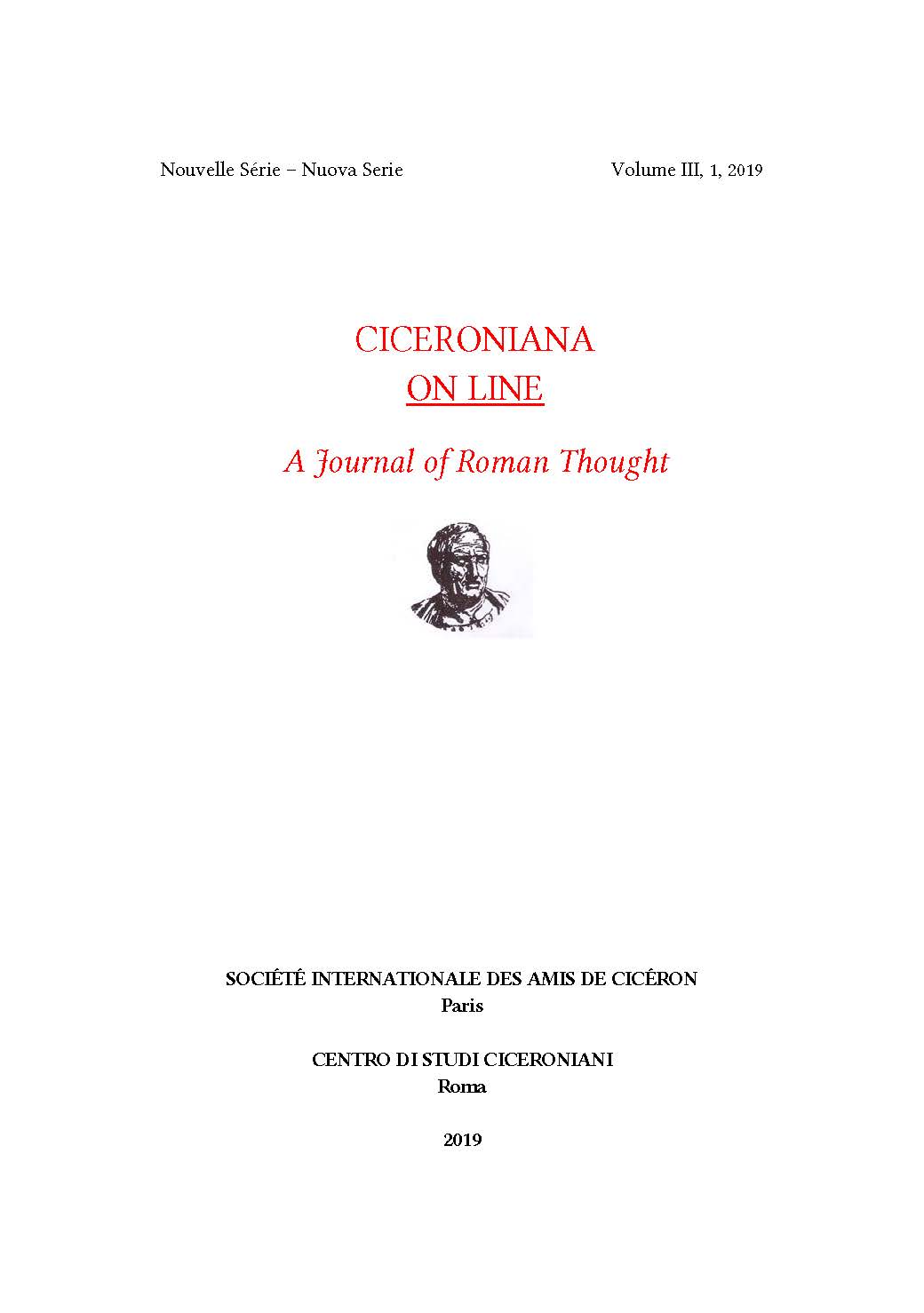Gli Epicurei romani sulla medicina: Senocle, Alessandro, Zopiro e Lucrezio - Roman Epicureans on Friendship: Xenocles, Alexandrus, Zoprius, and Lucretius
DOI :
https://doi.org/10.13135/2532-5353/3527Résumé
Il saggio ricostruisce il pensiero di quattro Epicurei romani sulla medicina: Senocle di Delfi, Alessandro e Zopiro, che figurano nei libri 2-3 delle Questioni conviviali di Plutarco, e Lucrezio. La tesi generale che si sostiene è che questi personaggi hanno in comune il fatto di essere esperti conoscitori di medicina e, nello stesso tempo, filosofi che usano questo sapere con il fine etico di condurre gli esseri umani alla felicità e alla salute. Senocle ricorre forse alla dottrina medica di Asclepiade di Bitinia per spiegare il fenomeno dell’appetito e indirizzare alla sazietà. Alessandro guarda forse alla medicina per razionalizzare e confutare il comando orfico-pitagorico di astenersi dalle fave. Zopiro e Lucrezio presentano, infine, la riflessione di Epicuro sui piaceri sessuali, invitando a coltivarli con temperanza e una prassi igienica.
The paper reconstructs the thought of four Roman Epicureans on the medicine: Xenocles of Delphi, Alexander, Zopyrus, who appear in books 2 and 3 of Plutarch’s Table Talk, and Lucretius. I argue that these characters are not only experts in medicine, but also share the common aim of making ethical use of this knowledge to lead humans towards happiness and good health. In turn, I explore the possibility that Xenocles draws on the medical doctrines of Asclepiades of Bithynia in order both to explain appetite and to exhort us to seek satiety; that Alexander uses medicine to explain and then reject the Orphic-Pythagorean injunction to abstain from beans; finally, that Zopyrus and Lucretius give an account of Epicurus’ reflection on sexual pleasure with the goal of encouraging the youth to seek it with moderation and with an hygienic regime.
Téléchargements
Téléchargements
Publiée
Comment citer
Numéro
Rubrique
Licence
Les auteurs qui publient dans cette revue acceptent les termes suivants :
- Les auteurs conservent leur propriété intellectuelle sur le texte soumis et accordent à la revue le droit de première publication, l'ouvrage étant alors disponible simultanément sous Licence d’attribution Creative Commons – qui permet le partage de l’œuvre tout en en reconnaissant la paternité intellectuelle – et la publication initiale dans cette revue.
- Les auteurs peuvent conclure des ententes contractuelles supplémentaires pour la diffusion non exclusive de la version imprimée de l'ouvrage par la revue (par exemple, le dépôt institutionnel ou la publication dans une monographie), à condition d’indiquer une mention reconnaissant la publication initiale du texte dans cette revue.


 Ciceroniana On Line est reconnue par l'ANVUR (Agence nationale d'évaluation du système universitaire et de la recherche) comme revue de classe A pour les sciences de l'Antiquité, la philologie, la littérature et l'histoire de l'art (
Ciceroniana On Line est reconnue par l'ANVUR (Agence nationale d'évaluation du système universitaire et de la recherche) comme revue de classe A pour les sciences de l'Antiquité, la philologie, la littérature et l'histoire de l'art ( Le journal a été approuvé pour inclusion dans DOAJ. La liste des publications DOAJ est disponible à l'adresse suivante:
Le journal a été approuvé pour inclusion dans DOAJ. La liste des publications DOAJ est disponible à l'adresse suivante: 
 La revue est indexée dans
La revue est indexée dans  La revue est incluse dans ERIH PLUS. La liste des revues d'ERIH PLUS est disponible à l'adresse suivante:
La revue est incluse dans ERIH PLUS. La liste des revues d'ERIH PLUS est disponible à l'adresse suivante: 
